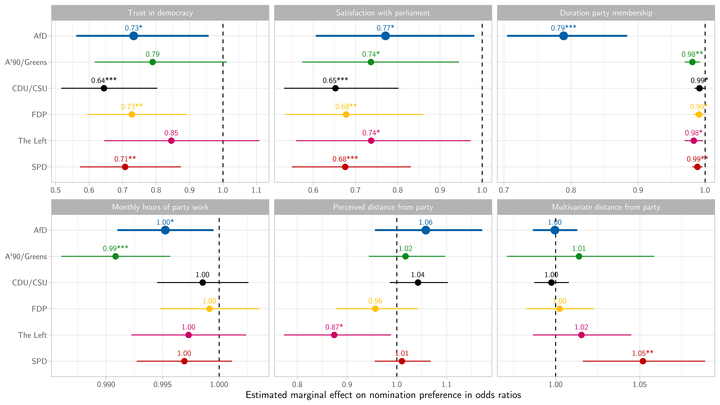What drives the intra-party democracy of the “Alternative for Germany”: Populist ideology, low institutionalisation or lacking party unity?

Abstract
The organisation of populist radical right parties significantly shapes their long-term electoral success. Within this party family, great organisational variation can be found, with the “Alternative for Germany” (AfD) representing a least-likely case: in terms of candidate selection (CS), it ranks much higher on democracy scales than the other Bundestag parties. This paper explores the reasons for this high level of intra-party democracy (IPD) by focusing on three explanatory dimensions: ideology, institutionalisation, and party unity. Methodologically, we apply multivariate analyses of representative quantitative data collected among AfD members at CS prior to the 2017 federal election. The results show that high political dissatisfaction and low levels of institutionalisation are important drivers of inclusive CS procedures. Overall, the article provides a deeper understanding of the underlying attitudes for the AfD’s inclusive IPD, and offers substantial theoretical and empirical implications for future research.